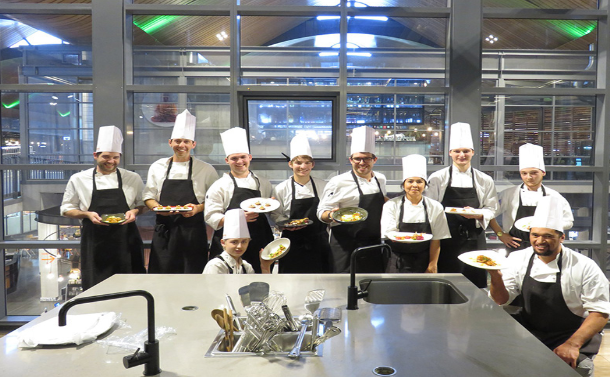As the hospitality industry continues to evolve, so does the need for top-notch education and training. LA Hospitality Training Academy leaders have a unique perspective on the future of hospitality education, having witnessed first-hand the rapid changes in this rapidly growing industry. In this blog post, we discuss ten key insights and predictions from reputable LA hospitality training academies, such as Los Angeles Hospitality Education Center experts, that provide valuable guidance to those looking to further their knowledge and training in hospitality. With decades of expertise between them, these thought leaders give an inside look into what’s coming in hospitality training.
10 Predictions From LA Hospitality Academy Leaders
- Technology: The future of hospitality training is technology-driven, emphasizing digital tools and platforms to facilitate learning and engagement. New technologies will revolutionize how people engage with hospitality training, from virtual classrooms to integrated customer service software.
- Globalization: With a growing number of international travelers, global connectivity is key for hospitality training. Programs must be adapted to different languages, cultures, and preferences to ensure a seamless customer experience regardless of the country or region.
- Personalization: With more data available than ever before, hospitality and diploma in culinary arts training can now provide much more personalized content tailored to each student’s needs. From customized coaching plans to tailored content, hospitality training will become increasingly tailored to each individual’s background and goals.
- Experiential Learning: Traditional classroom-based learning is over, as experiential learning is becoming the go-to delivery method in education. From hands-on simulations to real-world problem solving, experiential learning offers a more engaging and applicable approach to training, especially in reputable culinary arts schools in Los Angeles.
- Sustainability: As the world becomes increasingly aware of its environmental impact, sustainability is becoming an important factor in hospitality training. Topics such as eco-friendly practices, green initiatives, and sustainable sourcing are becoming standard components of hospitality programs.
- Soft Skills: Relationship building and communication are essential for the hospitality industry, and soft skills training is becoming increasingly important in hospitality education. From team-building exercises to conflict resolution training, courses must now focus on developing soft skills to ensure a positive customer experience.
- Specialization: With so many different areas of expertise within the hospitality industry, specialization is becoming a key trend in hospitality training. From food safety to event planning, courses now focus on more specific topics within the field so that students can develop expertise in their chosen area.
- Empathy: As the hospitality sector becomes more service-focused, understanding customer needs and developing empathy for guests is crucial to hospitality training. Programs must now include courses on emotional intelligence, customer service, and active listening to ensure successful customer interactions.
- Connectivity: As the need for networking grows, connectivity is an important aspect of hospitality training. From social media engagement to online resources and digital collaboration tools, connection and collaboration are becoming essential for success in the hospitality industry.
- Adaptability: The modern world is constantly changing, and those working in hospitality must be adaptable to keep up with trends and changes in customer expectations. Training programs must provide problem-solving, innovation, and creativity courses to ensure that students can quickly adjust to unforeseen events or customer demands.
In conclusion, the hospitality industry is continuously evolving, and with that, the need for top-notch education and training is increasing. The insights and predictions from reputable LA hospitality training academies, such as the Los Angeles Hospitality Education Center experts, provide valuable guidance to those seeking to further their knowledge and training in hospitality. It is crucial for hospitality training programs to keep up with these emerging trends and continuously adapt to ensure that students receive the best education and training possible.
FAQs
How important are soft skills in hospitality training?
Soft skills are essential for the hospitality industry, and soft skills training is becoming increasingly important in hospitality education. From team-building exercises to conflict resolution training, courses must now focus on developing soft skills to ensure a positive customer experience.
Why is specialization becoming a key trend in hospitality training?
With so many different areas of expertise within the hospitality industry, specialization is becoming a key trend in hospitality training. Individuals can develop expertise in their chosen area by focusing on more specific topics within the field, leading to career advancement and higher job satisfaction.
What is the role of empathy in hospitality training?
As the hospitality sector becomes more service-focused, understanding customer needs and developing empathy for guests is crucial to hospitality training. Programs must now include courses on emotional intelligence, customer service, and active listening to ensure successful customer interactions.
Why is adaptability important in hospitality training?
The modern world is constantly changing, and those working in hospitality must be adaptable to keep up with trends and changes in customer expectations. Training programs must provide problem-solving, innovation, and creativity courses to ensure that individuals can quickly adjust to unforeseen events or customer demands.

